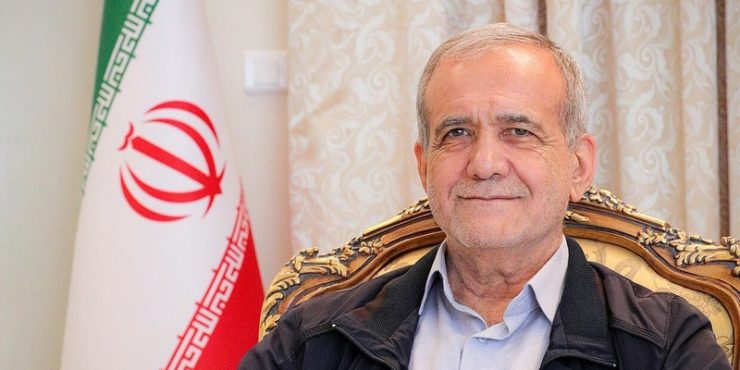
The demise of the former Iranian President in a plane crash after his visit from Azerbaijan sparked a leadership crisis in the country. Iran went into new elections to elect the new President of the country. The government is facing Western sanctions due to its anti-West and Islamic policies. Iran has been a staunch rival of Western interests in the Middle Eastern region. Islamic conservative regime in Iran has been the prime source of anti-West policies. However, the newly elected Iranian President Masoud Pezeshkian is expected to bring some change to Iran’s international stature. President Masoud is known to have a reformist ideology and has pledged during his election campaign to get some liberal reforms.
Emergence of Reformist Era
Several daunting challenges including economic downturn, pervasive unemployment, limited social freedom, diplomatic isolation, and increasingly growing anti-West sentiments frustrated the Iranian citizens, resulting in the commencement of a new reformist era in the country, ushered by the newly elected President Masoud Pezeshkian. The movement for reformism started in Iran during the rule of the former Iranian President Ebrahim Raisi, a staunch follower and ally of the Iranian Supreme Leader, Seyyed Ali Hosseini Khamenei. The death of President Raisi in a plane crash with seven other Iranian officials during his return from an official visit from Azerbaijan led to new general elections in the country.
The majority of the Iranians voted in favor of the reformist leader Masoud Pezeshkian in the hope of a more democratic and liberal Iran. The success of President Masoud in this election demonstrates that the polls were conducted in a free and fair manner. The rise of the liberal movement in the country in the tenure of former President Ibrahim Raisi against the Hijab law also became the triggering factor of this reformist revolution in Iran. The Iranian citizens were long depressed due to the conservative policies of the former government.
Challenges and Hopes for Reform
Iran has been subject to Western sanctions due to its anti-West policies which weakened its economic plight. Moreover, Iran’s involvement in the Israel-Hamas war through its support to Hamas, Hezbollah, and Houthis has also increased difficulties for the country at the international level. Under the leadership of former President Ebrahim Raisi, Iran also experienced clashes with its regional neighbors in the past. However, during the last months of his tenure, President Raisi attempted to restore ties with Iran’s neighbors and other regional countries.
Overall, there seemed a huge internal dissatisfaction among the Iranian citizens due to the conservative leadership and economic plight of the country. The newly elected President of Iran has rejuvenated hope among the frustrated citizens of Iran. In the past, he has served as a women right’s activist, a liberal, a health minister, a reformist, a heart surgeon, and a deputy speaker of the Iranian parliament. He is the only member of parliament who raised concerns about the death of Mahsa Amini – a girl killed during custody for not covering her head properly in public.
During his election campaign, he pledged to restore healthy relations with the West and ease the Hijab Law. The people of the country have great hopes for his leadership. They are expecting an improvement in the economic plight and international stature of the country. Iranians are expecting a more democratic and free society, and a free market economy under the leadership of President Masoud. He will usher in a significant transformation in Iranian society by addressing economic challenges, curbing surging unemployment, prioritizing women’s rights, and positively influencing the Supreme Leader.
Constraints on Presidential Influence
The Reformist leaders in the country educated and encouraged women to raise their voices against all sorts of discrimination in society. Moreover, they pursue the establishment of a liberal and democratic society in the country, based on equality, justice, equal economic opportunities, and the rule of law. Despite these hopes of the Iranian citizens for the newly elected President, it seems a formidable task for him to implement and deliver what he promised to his voters during his election campaign. In Iran, the Supreme Leader, appointed by an 88-member panel of experts, holds the actual powers.
The domestic and foreign policies of Iran are formulated under the auspices of the Supreme Leader. The president of the country is bound to chair the meeting of the Supreme National Security Council (SNSC) to formulate domestic and national security policies of the country under the guidelines provided by the Supreme Leader. However, the SNSC meeting is also influenced by the members appointed by the Supreme Leader and the commander of the IRGC. Therefore, it is unlikely that the newly elected President of Iran will be able to bring any significant change in Iran’s foreign or domestic policies. The country will continue to serve as a major threat to the interests of the United States and other Western powers in the Middle East. Furthermore, Iran will continue its support to all the proxy groups fighting against Israel. Iran’s main focus will be on forging cordial relations with Russia, China, and other regional countries under the auspices of the Supreme Leader. However, the newly-elected President can exert a limited influence on some domestic policies but he cannot alter the outlook of the country.
Taut Bataut – is a researcher and writer that publishes on South Asian geopolitics, exclusively for the online magazine “New Eastern Outlook”
